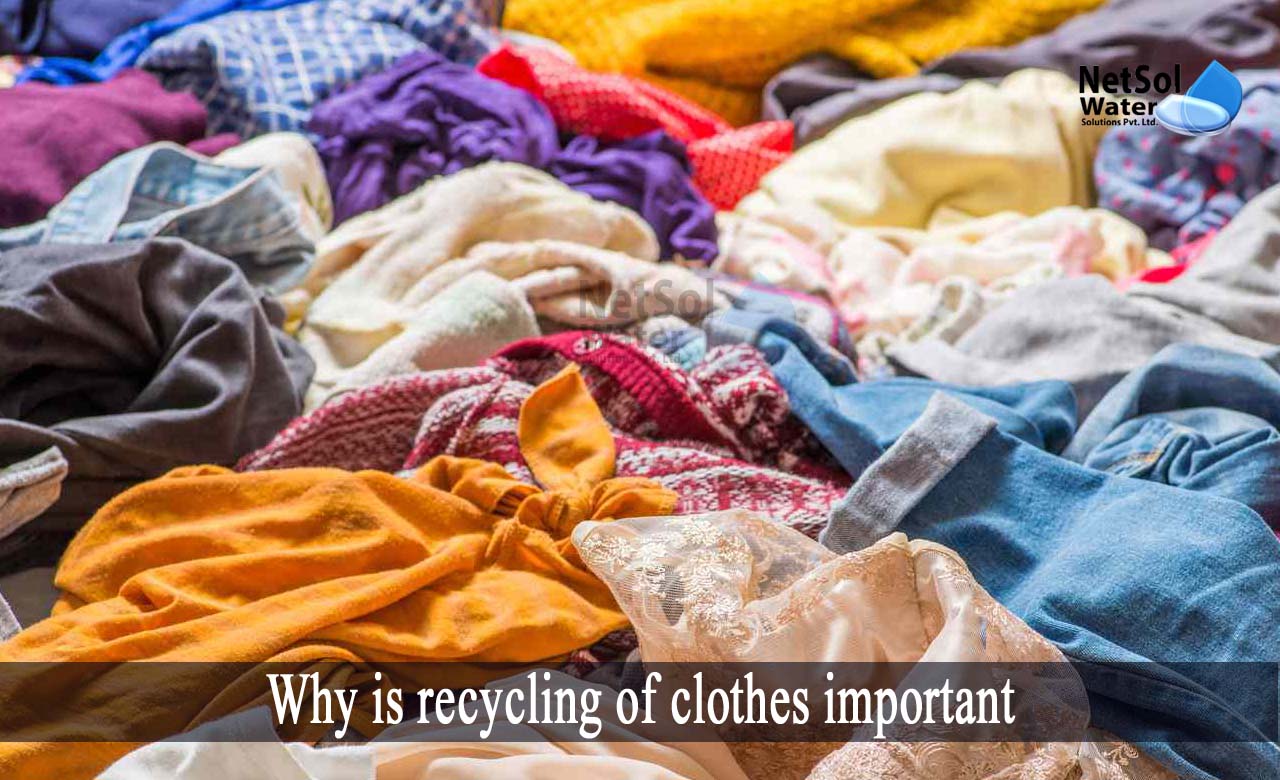Reduce, reuse, and recycle: This has been the mantra for years. We put the plastic bottle in the blue bin, but reusing and recycling is more important. The textile sector, in fact, is equally vital for recycling.
People are shopping and buying more, so the output of clothing is higher. However, the quick fashion industry and overstuffed closets, have all contributed to overflowing landfills. Consider the consequences of contributing discarded clothes to the landfill, versus textile recycling before tossing them in the garbage.
The Importance of recycling of clothes
We'll go through some of the most significant reasons to recycle your garments:
· It lowers greenhouse gas emissions
Clothing composed of natural fibers (cotton, linen) is biodegradable. However, when clothing are discarded and end up in landfills, they lack the oxygen required for organic compounds to degrade.
Lack of oxygen causes decomposition via anaerobic digestion, which means microbes break down organically, creating by-products such as methane. Methane escapes into the atmosphere on a regular and uncontrollable basis, affecting both our air quality and our planet.
· It conserves landfill space
When we don't throw our garments in the waste, they don't end up in the landfill, saving us a lot of space.
Landfills are hazardous in numerous ways, affecting not just our environment but also municipal budgets, and the health of entire communities.
When we recycle clothes and other goods, we help communities reduce landfill costs, which frees up funds for other vital city needs.
· It benefits those in need
The main reason people opt to recycle garments is to aid those in need. When you donate your clothes, for example, they are converted into monetary donations to benefit such charities.
However, donated clothing is frequently sold in resale stores or given to needy countries. When you recycle clothing, you help a lot of people.
· It lowers the cost of consumerism
People have been talking about the idea of living a minimalist lifestyle for some years. Though, it is not for everyone, the concept of living on less is an important ideal, especially in light of materialism.
People clear their closets and shop less—the minimalist lifestyle keeps us from engaging in expensive consumerism, or, more crucially, costly waste.
We make a personal impact on the wastefulness and costliness of the textile business, when we buy recycled clothing, recycle items ourselves, and simply buy less.
· It conserves vital energy
Clothing production consumes a significant amount of energy. Every piece of clothes you wear has been through a sophisticated manufacturing process, which necessitates the use of a large quantity of power, water, and other energy sources.
It conserves energy by lowering the need to create new materials. Also, by purchasing recycled clothing, you are reducing the volume of "fast fashion."
· It's Easy
One of the most essential reasons to recycle your garments is how simple it is to do so. It simply takes a few seconds longer to donate your clothes, than it does to throw them away.
When you consider how much you are helping the environment by recycling, it becomes much easier to drive and drop off the garments, or arrange for a donation pick-up.
What are the Methods of Cloth Recycling?
1: Donate your unwanted clothing! As previously stated, it is a simple method of recycling that benefits the environment, those in need, and yourself.
2: Make cleaning rags out of old clothes. Cut the clothing and use them as dusting and cleaning rags. It will help you save money, keep your home clean, and reuse goods that you might otherwise throw away.
3: Use them for crafting, and if you aren't a crafter, give them to someone you know who is.
4: Investigate additional textile recycling projects. Nike, for example, offers a Reuse-A-Shoe initiative in which they grind up worn-out athletic shoes, and use them to build playgrounds, courts, and other structures.
5: Check to see if the clothing may be composted. Cotton items can be composted; shred them finely, remove any attachments, and put them to your compost pile.
How can we assist?
Netsol Water is devoted to solid waste disposal that is both safe and responsible. To do this, we provide a wide range of modern solutions, including solid waste management, wastewater treatment, sewage treatment, effluent treatment, and recycling facilities.
We want to make sure that we're helping the environment and those in need. We also educate our clients on how to avoid pollution by taking a sustainable strategy, and utilizing advanced treatment methods. For additional information, contact our environmental experts at +91 9650608473 or email at enquiry@netsolwater.com



